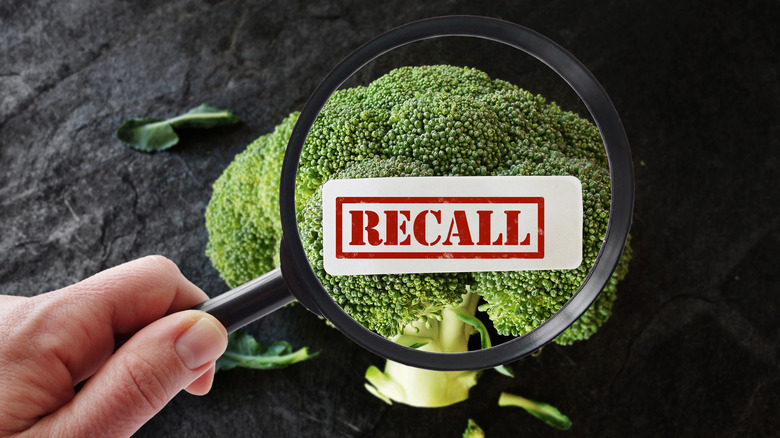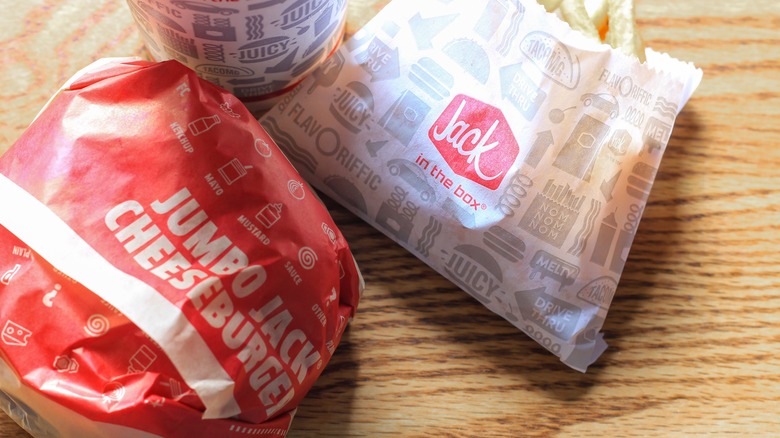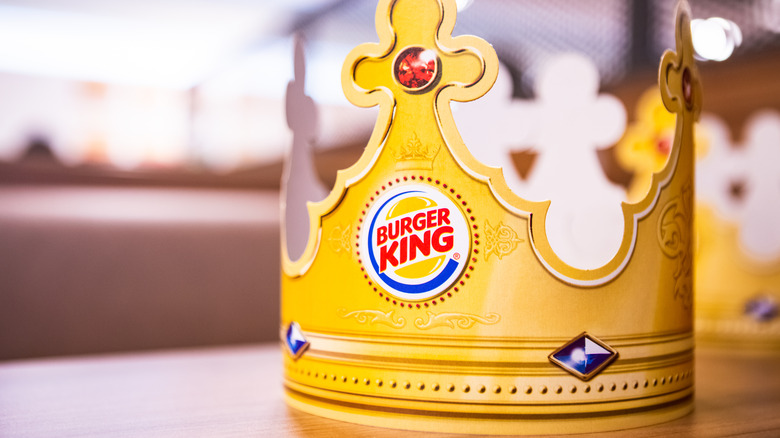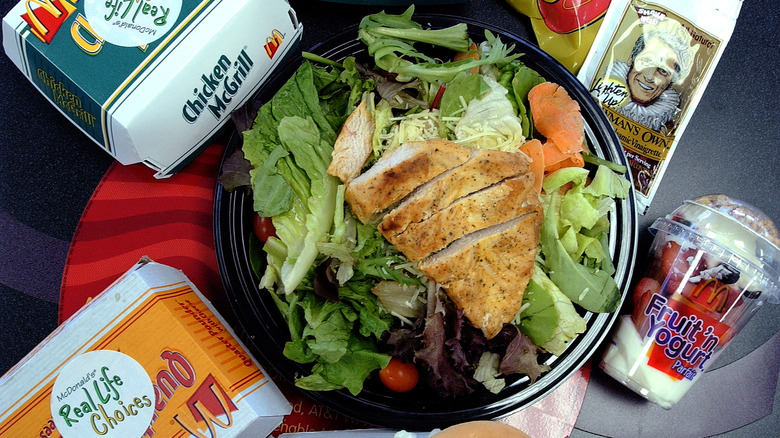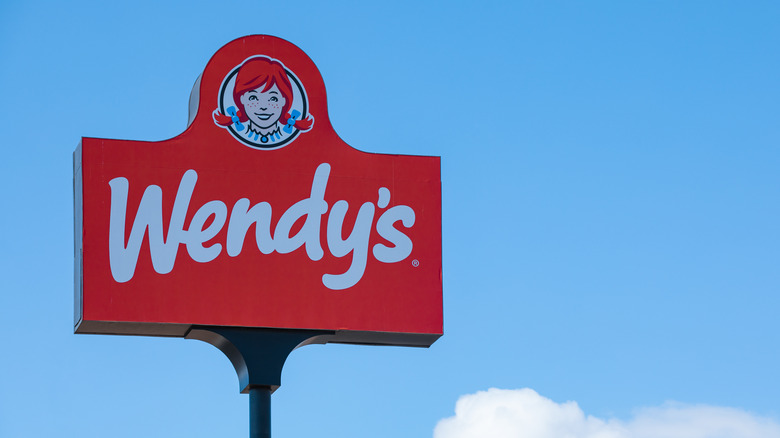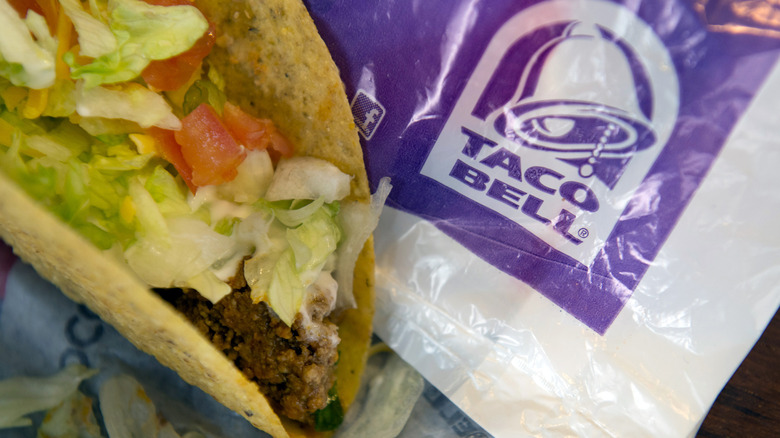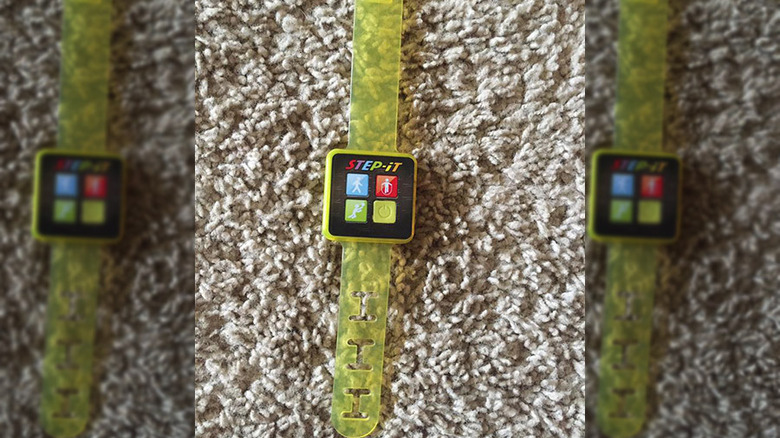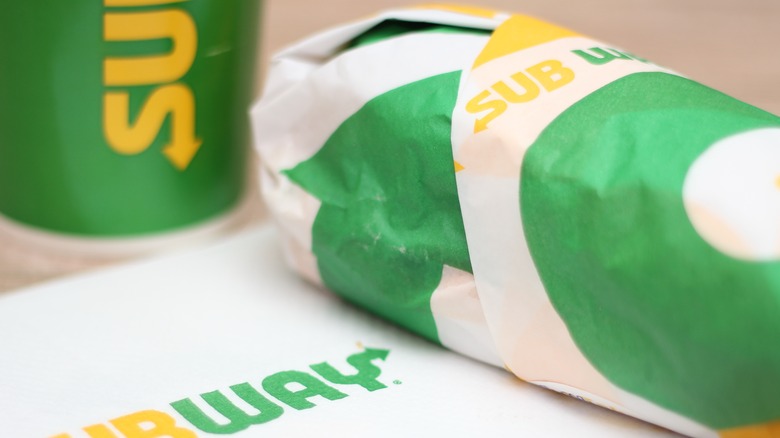The Worst Fast Food Recalls In History
Food recalls are a part of the business. It would be great if we could grow all of our own food in our backyard, but until someone figures out a hamburger seed, that's not a reality. In the meantime, most of us will choose to trust in the complicated industry that brings food from farms across the country and sticks it through our car windows fully formed. Along the way, ingredients will pass through several hands and several safety checks –assuming proper procedure is followed. Still, it's inevitable that a few bad eggs will slip through the cracks.
As the economy expands to give more value to more people, so do the recalls. Those recalls are becoming more frequent too. Take one recent year as an example: 2022 set records with over one billion products pulled from store shelves (though not all of them were food products). The silver lining is that a large majority of those recalls only affected a few stomachs and pocketbooks. To celebrate acknowledge America's newest milestone, we'll take a look at products recalled for the scariest reasons, the most poorly managed recalls, and the downright bizarre twists the worst fast food recalls in history have produced.
An major E.coli outbreak at Jack in the Box
After an outbreak infected over 700, hospitalized over 100, and killed four children in a month-long crisis, Jack in the Box will forever be infamous as the hamburger chain responsible for putting E.coli on the map. The Washington State Department of Health began an investigation after high rates of children were diagnosed with Hemolytic uremic syndrome in January 1993, eventually leading to the discovery of contaminated patties. The department alerted Jack in the Box brass on January 15, 1993, but the first victim of the crisis succumbed to their illness on December 28, 1992. That's more than two weeks of bum beef on the menu.
Eventually, the offending meat was traced back to 11 lots of beef patties that traveled to 73 different Jack in the Box locations. Further complicating this fast food recall was Jack in the Box and its parent company Foodmakers Inc., who took the fast food brand's clown logo too close to heart. In the investigation following the calamity, it came to light that company executives were aware of complaints about undercooked meat months before the outbreak. The mishandling of this recall became a landmark event for U.S. food safety. Even 14 years later, Senator Durbin referred to the episode on the Senate floor as "a pivotal moment in the history of the beef industry."
When Burger King became the prince of ham and cheese
A Burger King without burgers is a king without a crown. For a few fateful days in 1997, Burger King restaurants were exactly that. Hundreds of Burger King restaurants were forced to live off of ham and cheese sandwiches and BLTs after one of the company's major suppliers, Hudson Foods, well and truly dropped the ball responding to an E.coli contamination.
At first, the situation seemed under control. A few pounds of bad beef were found at Hudson's processing plant in Columbus, Nebraska and the company told the USDA it had identified 20,000 pounds of dangerous product and removed them from the line. The next day, they upped that number to 40,000. Two days hence, USDA inspectors arrived at their own tally: 1.2 million spoiled pounds.
The drastic discrepancies in numbers led the USDA to send an additional team of meat inspectors to the plant. Hudson Foods responded by releasing a statement that said in part, "When it comes to the public's safety, we are not going to take any chances," a bit tough to believe considering its history of taking chances with its workforce. After closer looks revealed a practice of using yesterday's leftover raw meat, the entire plant was shut down, and the USDA initiated a total recall of 25 million pounds of beef. Hudson Food would never financially recover from this. The company was sold to Tyson Foods weeks after the contamination.
Hallmark/Westland Meat Company animal abuse was caught on tape
An undercover video sparked a massive beef recall after employees at the Westland/Hallmark Meat Company were exposed prodding cattle with forklifts and forcing sick steers toward the slaughterhouse. While the video, sourced by the Humane Society of the United States, showed all sorts of graphic animal cruelty, the situation was elevated to a class II recall because cows that can't walk are known as downer cows, which pose an added risk of diseases.
Although the animals had passed pre-slaughter inspection, there was video evidence that the downed cows were not further inspected by veterinarians, which was against the rules. Hallmark/Westland eventually voluntarily recalled 143 million pounds of beef produced over a two-year period. The shock factor loomed large in this recall, especially considering the meat in question was being sent all across the country as part of the National School Lunch Program, as well as to Jack in the Box and In-N-Out Burgers. Even the company's president acknowledged being "horrified" by the footage.
Before this video broke, things were going well for Hallmark/Westland. The company sourced significant chunks of the school lunch program's ground beef and had been recognized as the USDA's supplier of the year just two years prior. Not any longer, as the downed cows took Hallmark/Westland down with them. The fines, lawsuits, and recall costs buried the plant, and the Hallmark/Westland Meat Packing Co. went out of business less than a month after the story broke.
Parasitic McDonald's salads
It's always tough to get betrayed by a fast-food salad. In 2018, Cyclospora Cayetanensis (a parasitic intestinal illness) wreaked havoc on Mcdonald's bottom line when it forced the chain to recall salads at 3,000 restaurants across 14 states. By the time the FDA was ready to call the outbreak over, there were more than 500 laboratory-confirmed cases of cyclospora infection.
This intestinal illness is caused by a microscopic parasite that enters the digestive system through contaminated food and water. The Cyclospora infestation at the Golden Arches was eventually traced back to Fresh Express brand salad mixes after a romaine and carrot mixture tested positive for the parasite. The brand worked with the authorities and explained that the parasitic carrots were only sent to Mcdonald's locations, a critical piece of information as multiple Cyclospora outbreaks were happening in the summer of 2018.
Romaine lettuce included in the bag tested positive and turned up in other pre-made salad mixtures, expanding the eye of the storm away from Mcdonald's and deflecting the brunt of the PR hit of this recall towards the Fresh Express supply chain. One disgruntled customer sued the supplier after her illness forced her into adult underwear.
Wendy's E.coli outbreak
In 2022, several customers discovered the hard way that Wendy's old "you know when it's real" slogan had a dark side. After several people reported feeling ill after eating a Wendy's sandwich, the restaurant chain quickly recalled romaine lettuce from stores in three states. When all the stomachs finally settled, there were over a hundred E.coli infections, with 80% reporting eating at Wendy's. The remarkable part about this particular fast food recall, and a sign of how far we've come regarding food safety, was how quickly Wendy's took action.
Wendy's decided that letting customers ask, "Where's the lettuce?" was better than sending its clientele to the emergency room and pulled romaine from its stores before the CDC could pinpoint a culprit. Lettuce was off the menu two days after 29 patients had fallen ill. As consumers started checking into the hospital and the scope of the investigation expanded, the number of states hit by the lettuce recall doubled. Ultimately, romaine was recalled at Wendy's locations in six different states.
Safety experts recommended avoiding any leafy greens from Wendy's in the weeks after as the company and consumers waited with bated breath to see if the infection numbers would climb, but Wendy's proactive approach seemed to pay off. The CDC closed its investigation by the beginning of the following month with zero related deaths and without ever identifying a specific ingredient as responsible for the outbreak.
Taco Bell's metal-laced beef
Nobody expects prime-grade ground beef from Taco Bell, but it is reasonable to expect your beef to be 100% edible no matter the price. Unfortunately, that was not the case in 2019, when Taco Bell tried to kill the metal, but failed. The company began voluntarily recalling meat after one customer reported thinking outside the bun and finding metal shavings. This complaint quickly spiraled into a recall of 2.3 million pounds of Taco Bell Seasoned beef taco and burrito filling sourced from Kenosha Beef International.
This recall occurred right before our eyes in real-time, thanks to social media. As Taco Bell corporate scrambled to get its PR team together, the company immediately stopped serving beef in restaurants across 21 states, stating that the meat didn't meet its quality standards. While the fast food restaurant worked with Kenosha Beef and the USDA to get to the bottom of the metal shaving outbreak and resupply, customers were left at the counter waiting on beefy burritos that would never come.
Unlike the before times when friends and family would be the only ones to hear our struggles, disgruntled customers instantly took to Twitter to demand beef. "Vegetables aren't going to sustain my figure," said one user. Once the metal shavings settled and the news broke, those customers were likely thankful that Taco Bell's proactive recall saved their stomachs from foreign intrusions.
McDonald's sizzling wrist piece
No pain, no gain. A year after the launch of Apple's first smartwatch, McDonald's celebrated wearable technology with a Happy Meal toy that helped count steps. The Step-iT toy came in two different styles: an activity counter that kept a step count and a motion-activated light-up band that blinked in accordance with movement speed. These two distinct trackers had a few things in common. Both styles had a square face featuring the words "Step-iT"front and center. Although they fit snugly on wrists, and some locations referred to them as watches, neither style told the time. And, perhaps the most unifying characteristic of all, both options were known to burn children's skin.
Step-iT fitness trackers were included as a happy meal toy starting in August 2016. Not long after, viral Facebook posts provided photographic evidence of burn marks. Parents speculated that the battery powering a flashing red light could be the cause of the trauma, and the toys were out of the happy meals before church on the following Sunday.
As the reported number of incidents crept past 70, it became clear that the whole lot had to go. McDonald's issued a voluntary recall of 29 million trackers in the U.S. alone, asking customers to trade in their trackers in exchange for a free replacement toy and their choice of a tube of yogurt or a bag of apple slices.
Chick-fil-A's Muppet collab gets stuck
Chick-fil-A has landed in hot water several times for being one of the only national fast-food chains that feel the need to define a household. Perhaps most famously, the COO of Chick-fil-A told the Baptist Press in 2012 that the company supports "the biblical definition of a family unit."
It's not much of a surprise that a chain that closes on Sunday has a biblical view on things, but given that the company spent much of the 2000s donating millions of dollars towards organizations with anti-gay agendas, the LGBTQ+ community was not eating more chicken. The quote set off a maelstrom of protests and kiss-ins at Chick-fil-As nationwide, and it all happened to go down while the brand was working on a Muppet collaboration.
The Baptist Press piece broke the same month Jim Henson Creature's Shop Muppet Kids Meal toy hit the white and red bags. Days after the quote was released, the Henson Company publicly declared that they did not wish to work with Chick-fil-A again in the future. One day before the announcement, and for apparently completely unrelated safety reasons, a voluntary Muppet toy recall was announced.
The company insisted that the two events were completely unrelated, citing safety concerns and stuck fingers as the reason for the recall. Still, the close timing of these two events makes this one of the most interesting fast food recalls in history.
Lee's sandwiches cuts a few corners
While none of Lee's Sandwiches tested positive for harmful bacteria, viruses, or parasites, it might just be because they weren't tested at all. While the company's lawyer promised that this recall was over a technical violation that didn't involve food safety, we'll never know because Lee slipped USDA certifications on products that were not properly inspected.
All in all, LQNN Inc., operating as Lee's Sandwiches, misrepresented almost 600,000 pounds of product. The jig was up after a surveillance review conducted by the USDA Food Safety and Inspection Service (FSIS) noticed the company was further processing federally inspected goods and repackaging them with USDA marks but without proper inspection. The corresponding kerfuffle called back 54,000 pounds of Banh Bao Pork & Egg Steamed Bun as investigators sought to understand precisely what was mislabeled and why. Products requested by the recall spanned almost a year of production, meaning this factory's problems were chronic.
Eventually, Lee's Sandwiches agreed that it and its subsidiaries could not repackage meat and came to terms with a $250,000 fine and four years of probation. The company is also barred from manufacturing beef or poultry products until 2025. When announcing the agreement, the company promised the problem was as simple as condensing 5-pound meat containers into smaller packages, but regardless, when it comes to food safety, it's important to be a stickler for the rules.
McDonald's international serves a foul combo
Plenty of scandals plagued McDonald's as it expanded to serve billions and billions nationally, but internationally is where the company has waged some of its most questionable campaigns, like deciding to release a McAfricka in Norway.
While bad advertisements and questionable specials can be written off as growing pains, things really got nasty in the mid-2010s with a combo of tainted burger meat and plastic parts in chicken nuggets. It started with footage of workers at a Shanghai food-processing factory picking meat up off the floor and putting it back on the line. The Shanghai Municipal Food and Drug Administration (FDA) followed up on the film and discovered that expired meat was being repackaged with new expiration dates.
McDonald's pulled burgers off the menu in large swaths of Northern China and sought to clean up the supply chain, but the recalls weren't over just yet. Not even one full year removed from the Chinese burger scandal, McDonald's Japan recalled almost a million chicken nuggets after a customer found plastic pieces in their McNuggets. Unfortunately, the recall didn't stop another customer from finding a piece of vinyl in their meal two days later. After the epic run of bad press, McDonald's Japan sales in some months of 2015 dropped 10% year-to-year.
Subway took artifical up a notch
In 2015, one year after Subway got rid of the yoga mat chemical, a new secret ingredient found its way onto the shelves. West Liberty Foods, a prominent Subway supplier and the winner of the sandwich brand's 2012 Vendor of the Year award, recalled 34,000 pounds of fully cooked grilled chicken breast destined for the sandwich maker's below-counter fridges.
No supplier can bat a thousand forever. The distributor had previously sourced over a million pounds of cooked sliced sandwich meat a week for Subway, so it was only a matter of time before a pound or two of wild turkey slipped through the cracks. The drama behind this recall wasn't the quantity but the reasoning for the return recommendation, as it was initiated after consumers found tiny plastic pieces in their chicken.
West Liberty Foods was able to survive this PR hit in large part because (thankfully) the ill-fated consumers reported no injuries or illnesses after consuming the plastic. We'll let you decide if you'd rather risk foodborne illness or see how your gut can handle plastic pieces, but in a perfect world, we'd be able to enjoy a sandwich without worrying about either one.
